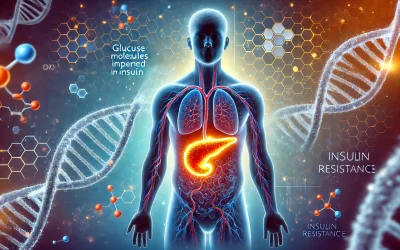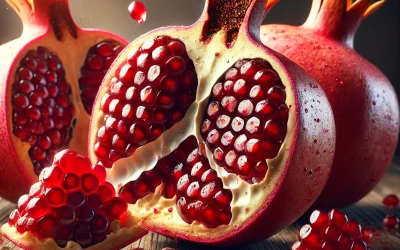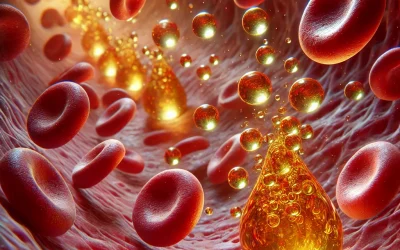Managing diabetes effectively requires careful attention to dietary choices, particularly the types of fats consumed. While oils and nut butters are common sources of healthy fats, high-protein foods like meat and fish also provide valuable fats that impact insulin response. In this article, we explore the best high-protein fat sources, ranking them from the best to worst based on their effects on blood sugar and insulin response.

Understanding Fat in High-Protein Foods
Fats play a crucial role in diabetes management by slowing down glucose absorption and reducing post-meal blood sugar spikes. However, not all fats have the same impact. The key factors influencing insulin response include:
- Type of Fat: Unsaturated fats (especially omega-3s) tend to improve insulin sensitivity, while saturated and trans fats can impair it.
- Protein & Glycemic Load: Some high-protein foods contain little to no carbs, but their protein content can still trigger a mild insulin response.
- Processing & Additives: Highly processed meats often contain added sugars and unhealthy fats, which can negatively affect blood sugar control.

Ranking High-Protein Fat Sources for Diabetes
The table below ranks these foods based on their insulin response, with the best options at the top and the worst at the bottom.
| Food | Fat Type | Protein (per 100g) | Fat (per 100g) | Impact on Insulin |
|---|---|---|---|---|
| Sardines (wild-caught) | Omega-3 (EPA & DHA), monounsaturated | 25g | 11g | Very low – improves insulin sensitivity |
| Salmon (wild-caught) | Omega-3, monounsaturated | 22g | 13g | Very low – supports metabolic health |
| Mackerel | Omega-3, monounsaturated | 20g | 14g | Low – rich in anti-inflammatory fats |
| Trout | Omega-3, monounsaturated | 21g | 7g | Low – beneficial for blood sugar stability |
| Grass-Fed Beef | Monounsaturated, some saturated | 26g | 15g | Moderate – higher saturated fat but good for satiety |
| Chicken Thighs (skin-on, pasture-raised) | Monounsaturated, some saturated | 24g | 10g | Moderate – protein can cause some insulin release |
| Turkey (dark meat) | Monounsaturated, some saturated | 27g | 8g | Moderate – lower insulin response than processed meats |
| Eggs (whole, pasture-raised) | Monounsaturated, some saturated | 13g | 11g | Moderate – whole eggs improve insulin sensitivity |
| Pork (unprocessed, pasture-raised) | Monounsaturated, some saturated | 22g | 12g | Moderate – insulin response varies by cut |
| Duck (skin-on, pasture-raised) | Monounsaturated, some saturated | 19g | 18g | Moderate – higher fat but nutrient-dense |
| Cheese (full-fat, unprocessed) | Saturated, monounsaturated | 25g | 30g | Higher – dairy protein triggers more insulin release |
| Lamb (grass-fed) | Saturated, monounsaturated | 26g | 21g | Higher – some insulin response due to protein |
| Bacon (uncured, no sugar added) | Saturated, some monounsaturated | 15g | 42g | High – processed meats increase inflammation |
| Sausages (processed, high-fat, low-carb) | Saturated, trans fats possible | 12g | 35g | Very High – insulin resistance risk increases |
| Fried or Processed Meats (hot dogs, fast food burgers, deli meats) | Trans fats, saturated | Varies | High | Very High – additives impair insulin function |
Key Takeaways
- Best Choices: Fatty fish like sardines, salmon, and mackerel are the best sources of fats in high-protein foods, as their omega-3 content improves insulin sensitivity.
- Moderate Choices: Unprocessed meats like grass-fed beef, chicken thighs, and turkey have a moderate insulin response but can be included in a balanced diet.
- Limit Processed Meats: Bacon, sausages, and deli meats have a higher insulin response and should be limited due to their potential negative effects on metabolism.
- Dairy & Eggs: Whole eggs and full-fat cheese provide beneficial fats but may have a moderate impact on insulin due to their protein and dairy content.
- Avoid Highly Processed Meats: Processed meats containing additives, preservatives, and trans fats increase insulin resistance and inflammation.

Conclusion
For individuals with diabetes, choosing the right high-protein fat sources is essential for managing insulin levels and maintaining metabolic health. Prioritizing fatty fish, pasture-raised meats, and whole eggs while avoiding processed meats will help keep blood sugar stable and reduce the risk of insulin resistance.




































